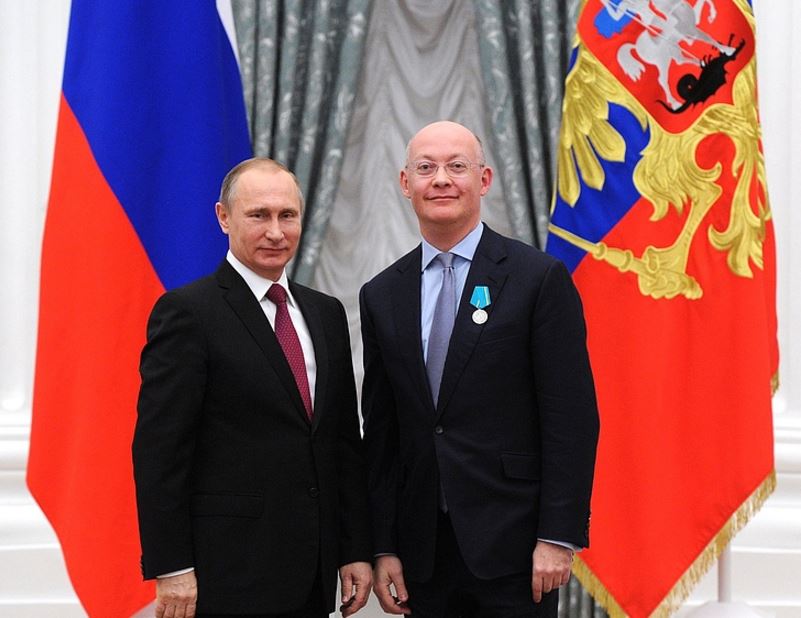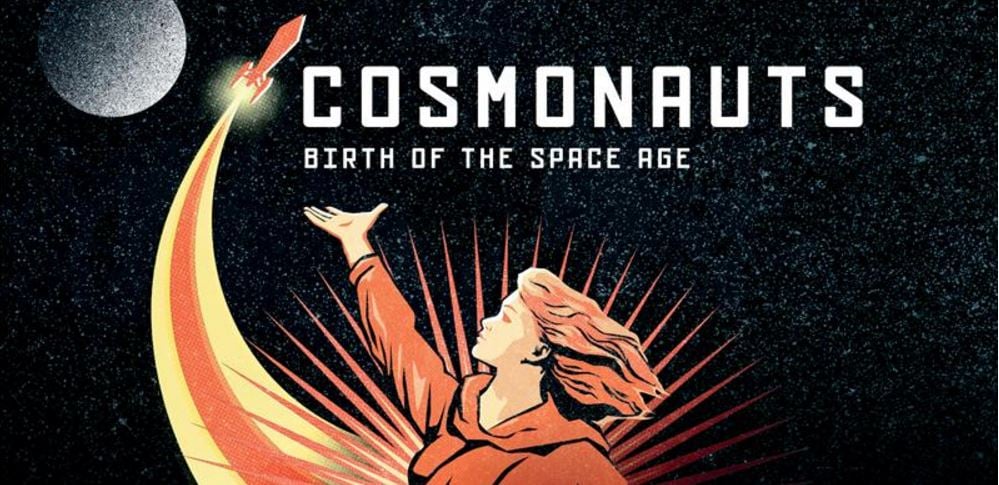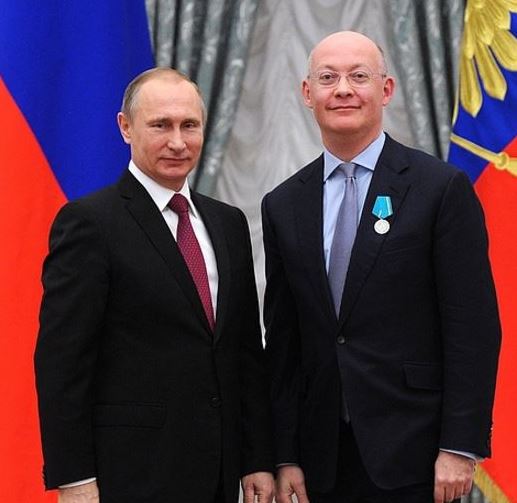Russian President Vladimir Putin has awarded the Medal of Pushkin to Ian Blatchford, Director of the Science Museum in London, who oversaw the hugely popular Cosmonauts: Birth of the Space Age exhibition, where visitors can discover the dramatic story of how Russia transformed the dream of space travel into a reality and became the first country to explore space.
The Medal of Pushkin (медаль Пушкина) is a Russian Federation state decoration awarded to its citizens and sometimes foreigners for achievements in the arts, culture, humanities, literature and education. It is named in honour of Alexander Sergeyevich Pushkin (1799-1837), a Russian novelist, poet and playwright of the Romantic era, considered by many to be the greatest Russian poet and the founder of modern Russian literature.
President Putin personally pinned the medal on Thursday 10th December on Mr. Blatchford. He was among just a handful of foreigners, including Chairman of the Korean financial-industrial corporation Lotte Mr Dong Bin Shin, and the actress Consuelo de Haviland, who represents Russian Railways in France.
 Ian Blatchford, Director of the Science Museum of London, receiving the Medal of Pushkin from Russian President Vladimir Putin. (Image: Kremlin)
Ian Blatchford, Director of the Science Museum of London, receiving the Medal of Pushkin from Russian President Vladimir Putin. (Image: Kremlin)
Several dozen Russians were also awarded medals, ranging from Evgeni Poddubny, a state TV journalist whose reports are credited for paving the way for Russia’s intervention in Syria, to cosmonaut Sergei Ryazansky and opera singer Dmitri Hvorostovsky.
‘A country that I have come to love’
Mr. Blatchford told Mr. Putin, after receiving the medal (in Russian):
“It is a great honour for me to get this medal in a country that I have come to love.”
He then continued in English and talked about the popular exhibition at the Science Museum in London, which “reminds the whole world of Russia’s leadership in space exploration and how it was made possible by brilliant engineers, cosmonauts and the imagination of the Russian people.”
Mr. Blatchford said he was pleased to receive the Medal of Pushkin just before Tim Peake, the British astronaut, lifts off to the International Space Station on December 15th from Russia’s Baikonur Cosmodrome in Kazakhstan in the Soyuz TMA-19M spacecraft alongside Russian cosmonaut Yuri Malenchenko and NASA astronaut Tim Kopra.
 ‘Cosmonauts: Birth of the Space Age’ reveals the most significant collection of Russian spacecraft and artefacts ever to be shown in Britain, including Vostok 6, the capsule flown by Valentina Tereshkova, the first space-woman, Voskhod 1, the first capsule to carry more than one crew member, and the LK-3 Lunar Lander, a single spacecraft built to compete with Apollo. (Image: sciencemuseum.org.uk)
‘Cosmonauts: Birth of the Space Age’ reveals the most significant collection of Russian spacecraft and artefacts ever to be shown in Britain, including Vostok 6, the capsule flown by Valentina Tereshkova, the first space-woman, Voskhod 1, the first capsule to carry more than one crew member, and the LK-3 Lunar Lander, a single spacecraft built to compete with Apollo. (Image: sciencemuseum.org.uk)
Mr. Blatchford’s speech ended with what he said was his favourite phrase in Russian “Slava Gagarinu” (“Слава Гагарина” – “Glory to Gagarin”). Yuri Alekseyevich Gagarinl (1934-1968) was a Russian Soviet pilot and cosmonaut. He was the first human to travel into space, when his Vostok spacecraft completed an orbit of the Earth on April 12th, 1961.
The Cosmonauts: Birth of the Space Age exhibition will be open to the public until 13 March, 2016. Cost: £14 (concessions available). Bookings can be made online or by calling 0870 870 4868.
After visiting the exhibition, Professor Brian Cox said:
“You will leave Cosmonauts with a different view of humanity’s place in the cosmos.”
Video – Cosmonauts: Birth of the Space Age
Professor Brian Cox talks about the Science Museum’s new blockbuster exhibition on the history of space travel in Russia.

